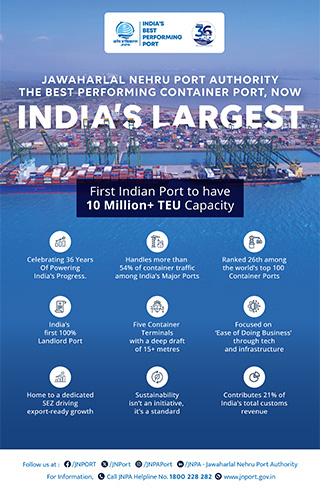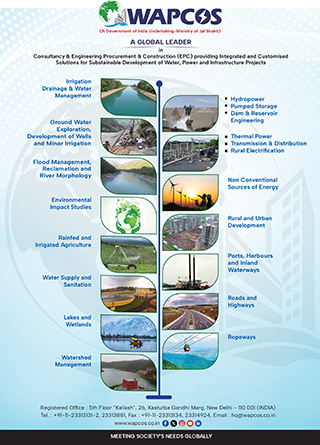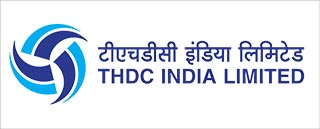whispers in the corridors
Under RAMP Programme In a quiet but consequential push to green India's smallest state amid the nation's broader decarbonisation drive, the Centre of Research for Energy Efficiency and Decarbonization (CREED) at the Indian Institute of Technology Ropar has delivered specialized energy and water audits to micro, small, and medium enterprises in Goa under the Government of India’s acclaimed Raising and Accelerating MSME Performance (RAMP) program, partnering with the state’s Directorate of Industries, Trade and Commerce to arm local industrial units with essential tools, insights, and technical guidance for trimming costs, rooting out inefficiencies, and embracing cleaner technologies. Backed by rigorous research and a strong record of industrial engagement across multiple states, the Centre of Research for Energy Efficiency and Decarbonization's auditing arm, KISEM, has been working closely with micro, small, and medium enterprises in Punjab, Himachal Pradesh, and Haryana on decarbonisation efforts, now extending that expertise to Goa by forming a dedicated team to map energy and water consumption patterns in local industries, uncovering often-unnoticed operational wastage, with each audit delivering an investment-grade project report that details corrective measures, technology upgrades, and process optimizations to drive sustainable advancements under the RAMP initiative. For Goa’s MSMEs, the programme has arrived at an opportune moment. The RAMP scheme offers a 50 per cent government subsidy on the cost of energy audits, substantially lowering the barrier for small industries to access top-tier technical expertise. Combined with additional incentives for under the umbrella scheme, the collaboration has opened the door for businesses in the state to modernize operations while keeping costs manageable. Officials involved in the initiative noted that the audits are helping MSMEs address long-standing challenges — from excessive fuel and electricity usage to inefficient water handling and outdated machinery. Many units, they said, would be able to identify high-impact, low-investment improvements within days of CREED’s assessments. CREED’s work in Goa builds on its expanding national footprint in energy-efficiency services. In Punjab, where the Centre has been deeply active, CREED-led initiatives have already proposed for more than 49,000 tonnes of CO₂ reductions annually, underscoring the Centre’s ability to deliver real-world climate gains through systematic audits and industry-focused research. Commenting on the initiative, IIT Ropar Director Prof. Rajeev Ahuja said that CREED’s engagement in Goa reflects the institute’s commitment to bringing academic excellence to industry’s doorstep. “Our work with MSMEs under the RAMP program will show how targeted interventions can reshape industrial performance. By combining advanced research with on-ground support, we will help enterprises become cost-efficient, resource-conscious and future-ready.” CREED Coordinator Dr. Manigandan S added that the Centre’s audit methodology is designed to be both practical and transformative. “We focus on solutions that industries can implement immediately, while also preparing them for long-term sustainability. The response from Goa’s MSMEs has been extremely encouraging.” As the programme continues, IIT Ropar’s CREED is expected to expand its engagement with Goan industries, strengthening the state’s shift toward cleaner, more efficient manufacturing practices.
Send Feedback
- NMDC celebrates more than six, a half decade of excellence as India’s leading Iron Ore producer (UPDATED)
- Atul Gupta selected as CMD, Engineers India Ltd (UPDATED)
- Abhishek Singh accredited as Permanent Representative to ECOWAS (UPDATED)
- Keel Laying ceremony of MPV built for M/s Navi Merchants (UPDATED)
- REC Shines at 7th Edition of Future of Legal and Compliance Summit & Awards 2025 (UPDATED)
- Cadre of Anoushka Sharma transferred to UP (UPDATED)
- Manju Rajpal is also Administrator, RAJFED, Jaipur (UPDATED)
- HURL’s Executive Development Program 2025 concludes (UPDATED)
- World Bank seeks Sr Executive Assistant, Singapore
- World Bank seeks IT Analyst, Business Solution, Chennai
- JERC post for Goa & UT to fall vacant in June 2026
- CONCOR advertises GGM & Sr GM (C&O) posts for Delhi, Kolkata & Ludhiana
- CRT for Company Prosecutor post in Corporate Affairs Ministry on Jan 11
- 50 ITS officers got regular promotion
- 8 ITS officers transferred
- Manoj Kumar Singh appointed as CEO, UP State Transformation Commission
- No withdrawal of post-retirement benefits, says govt
- Whispers on Cadre Inductions in Himachal Pradesh
- IREL headless since last year
- What type of probe agency is doing?
- When the Minister fired officials ?
- J&K: This IPS officer saw a plot in a poster
- West Bengal Chief Secretary Manoj Pant under scrutiny?
- Know the officers bureaucrats spearheading the preparations to host the UNESCO delegation on December 2 in New Delhi
- Expected Changes in IAS and IPS Cadres in Bihar Post-NDA Victory
- Bjp's Influence Over Bihar Bureaucracy Expected To Deepen. Amit Shah's Team Already Has A List?
- No bureaucratic changes in Bihar- at least for time being
- V Srinivas is new CS, Rajasthan
- Will Odisha Chief Secretary get another extension ?
- IPS Aaditya Mishra’s Policing Model in Naxal-Affected Balaghat(MP): “If people cannot reach administration, the administration will reach them.”





























